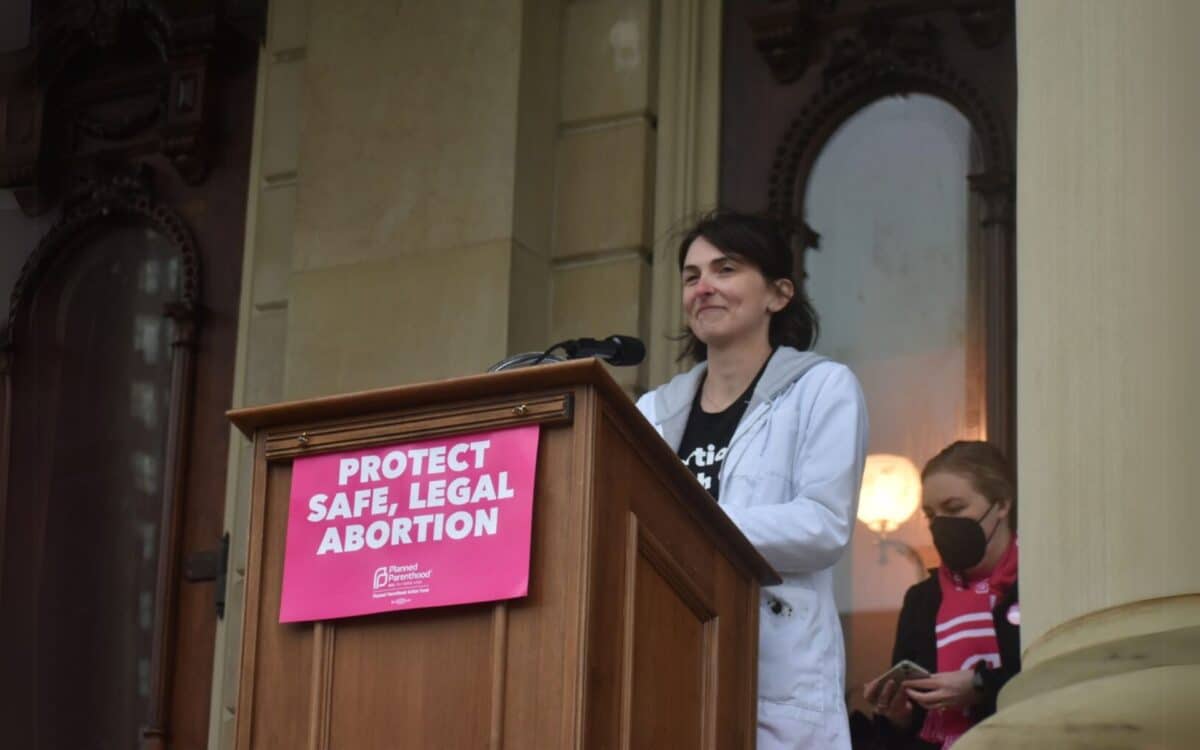Across the United States, abortion clinics are continuing to close their doors, even in states where the procedure remains legally protected.
These closures are not limited to politically hostile regions but are increasingly appearing in places once considered strongholds for reproductive access. While the reasons vary, many providers cite rising costs, staffing shortages, and unpredictable funding streams as central concerns.
According to NPR, this growing trend reflects a deeper instability within the reproductive health infrastructure, exposing vulnerabilities that go beyond legislation. Behind each shuttered clinic is a broader story of strained systems and patients left with fewer options for care.
Closures Impact Rural Regions Hardest
In 2023, 17 abortion clinics closed in states where abortion remains legal. That same number had already closed again by May 2024.
In Michigan alone, Planned Parenthood of Michigan (PPMI) has closed four clinics, including the only abortion provider in the Upper Peninsula, a region with limited medical infrastructure.
That clinic in Marquette, which served around 1,100 patients annually, is now shuttered, forcing residents to drive nearly five hours south for equivalent care.
The clinic’s final day drew a crowd of supporters.
Thank you for trusting us with your care – said Anna Rink, a physician assistant, her voice trembling.
And I’m not stopping here. I’m only going to make it better. I promise. I’m going to find a way.” One person in the crowd shouted, “We’re not done! We’re not giving up!

PPMI stated that while the closures are painful, they were necessary due to the centers being their “smallest health centers” and “the most difficult to operate,” according to Sarah Wallett, chief medical operating officer.
Federal Funding Gaps and Operational Cost Pressures
PPMI says it’s facing a looming loss of $5.4 million per year — roughly 16% of its budget — due to the expected freeze in Title X federal funding under the returning Trump administration. The program, which provides low-cost family planning, had been previously cut from 2019 to 2021. This time, leadership anticipates a longer exclusion.
Meanwhile, Medicaid, which covers 28% of PPMI’s patients, does not reimburse for abortion services in Michigan, forcing many low-income patients to rely on overburdened abortion funds.
We know that telehealth cannot bridge every gap – said PPMI in response to patient concerns.
But the majority of services we provide will remain available via the Virtual Health Center and PP Direct, including medication abortion, birth control, emergency contraception, and gender-affirming care.
Telehealth Is Growing, but It Can’t Replace Clinics
Telehealth has surged since pandemic-era rules lifted in-person requirements for abortion pills. The 2022 Dobbs decision accelerated this shift further.
It drew all this attention to models of providing abortion services – said Caitlin Myers, an economist at Middlebury College.
Put more simply, it’s gotta change their business model.
PPMI’s virtual clinic is now its busiest, serving more than 10,000 patients annually. Plans are underway to expand appointments by 40%, including nights and weekends.
In telehealth, I can have an appointment in my car during lunch – said Wallett.
I don’t have to take extra time off… or find child care.
But for some, telehealth is out of reach. In Michigan’s Upper Peninsula,
Some areas are dark zones for cell coverage – said Hannah Harriman, a local public health nurse.
People have to drive to McDonald’s to use Wi-Fi… you can’t get internet in some places.
Consequences for Access and Patient Care
Local clinicians are already feeling the strain. Dr. Viktoria Koskenoja, an ER doctor who formerly worked at the Marquette clinic, said a recent patient with complications from gynecological surgery was turned away from the only OB/GYN practice in town due to waitlists of 30–40 referrals per month.
Adding in the burden of all the patients that were being seen at Planned Parenthood is going to be impossible – she warned.
I wish I had been in the room so I could have fought for us and I could have fought for our community – Koskenoja said of the closure.
We just weren’t part of the group that was going to be saved.
Some local providers now quietly offer medication abortion — but only to existing patients, and discreetly. For many, the loss of a public clinic leaves a patchwork of partial solutions.
We lost a very functional system for delivering this care to patients – Koskenoja added. And now, we’re just having to make it up as we go.
Financial Instability Is Reducing Capacity
National abortion funds are also under pressure. The National Abortion Federation has cut its assistance from 50% of patient costs to 30% due to budget constraints.
When patients can’t afford care, that means they might not be showing up to clinics – said Brittany Fonteno, the group’s CEO. She also noted that
85% of clinics reported seeing an increase of clients delaying care due to lack of funding.
This delay has real impacts. One abortion fund reported a 60% increase in patients delaying care into the second trimester over a six-month period in 2024.
Low reimbursement rates affect all services, not just abortion.
The reality is that insurance reimbursement rates across the board are low – said Paula Thornton Greear, CEO of PPMI.
When you layer on these funding impacts, it creates a chasm that’s impossible to fill.
Leadership Under Scrutiny
Planned Parenthood as a national organization brings in hundreds of millions annually, much of which goes to policy and legal work. Some frontline staff and supporters question whether more of that should be redirected to sustaining clinics.
PPMI has not reduced executive salaries, despite cutting 10% of its staff and closing physical locations.
Workers at five Michigan clinics unionized last year, citing mismanagement and poor working conditions.
I think that it [the national funding structure] needs to be looked at – said Thornton Greear.
And I know that that is actively happening.
Despite protections in state constitutions — like those passed in Michigan and Illinois — and legal abortion up to 18 weeks in Utah, closures continue due to economic fragility. Erin Grant, of the Abortion Care Network, summed it up:
These states that we have touted as being the best kind of versions of our vision for reproductive justice… they too struggle with problems.
It’s gotten more expensive to provide care, it’s gotten more dangerous to provide care, and it’s just gotten, frankly, harder to provide care – Grant said.
When you’re expected to be in the clinic and on the statehouse steps — and also trying to find somebody who’ll fix your roof or paint your walls without inserting their opinion about health care rights.
If a clinic could survive the fall of Roe v. Wade – Fonteno said,
You would think that resilience could carry you forward.
But for many communities like Marquette, resilience wasn’t enough.









